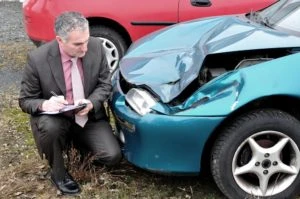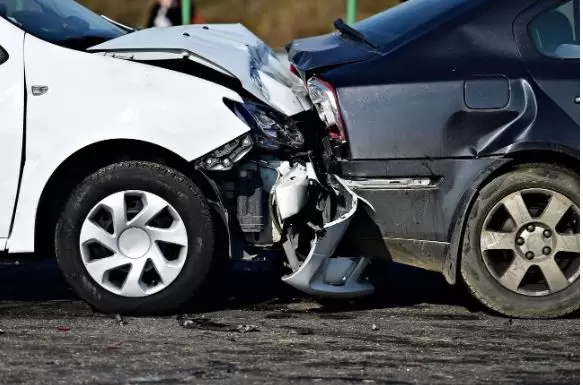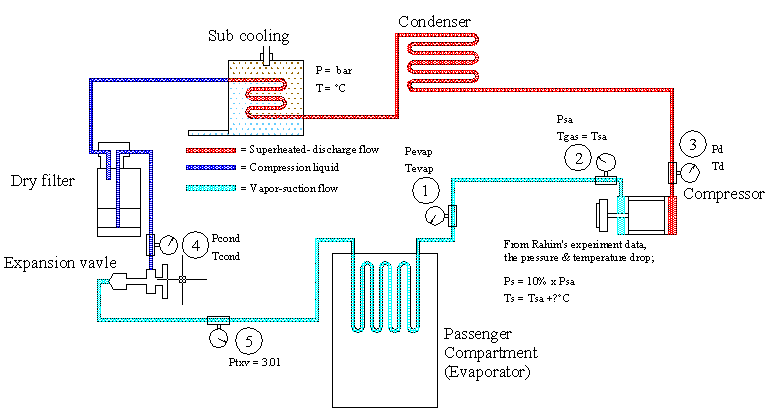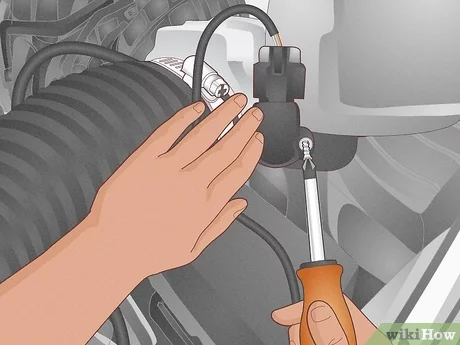The at-fault driver’s insurance typically pays for the rental car. This depends on the policy and state regulations.
Accidents can be stressful, especially dealing with vehicle repairs and transportation. One common question is who pays for a rental car after an accident. The at-fault driver’s insurance often covers this cost. This responsibility varies based on individual insurance policies and state laws.
Understanding your insurance coverage is crucial. It ensures you know what to expect in such situations. Knowing your rights helps in managing post-accident logistics. It also aids in ensuring you aren’t left without a vehicle. Always review your insurance policy details to stay informed. This helps in avoiding unexpected expenses.

Credit: www.injuredct.com
Introduction To Rental Car Coverage After An Accident
Introduction to Rental Car Coverage after an Accident
Accidents can be stressful and confusing. Understanding rental car coverage helps ease the burden. This section explains how rental car coverage works after an accident. Learn who pays for a rental car if you are at fault.
Understanding Rental Car Insurance Options
Rental car insurance comes in different types. Each type offers unique protection. The main options include:
- Collision Damage Waiver (CDW): Covers damage to the rental car.
- Liability Insurance: Covers damage to other vehicles or property.
- Personal Accident Insurance: Covers medical costs for injuries.
- Personal Effects Coverage: Covers personal belongings in the rental car.
Check your existing auto insurance policy first. Many policies include rental car coverage. Credit card companies also offer rental car insurance. Contact your provider to confirm.
Assessing Your Need For A Rental Vehicle Post-accident
Consider if you need a rental car after an accident. Ask yourself these questions:
- Is your car drivable?
- How long will repairs take?
- Do you have access to another vehicle?
If you need a rental car, take action quickly. Contact your insurance company right away. They will guide you through the process. They can also arrange a rental car for you.
If you are at fault, your insurance might cover the rental car cost. If not, you may have to pay out of pocket. Discuss with your insurance adjuster to understand your coverage.

Credit: kainelaw.com
Determining Fault In Car Accidents
Understanding who is at fault in a car accident is crucial. This determines who pays for damages, including rental cars. Fault can be tricky to establish, but it is essential for insurance claims.
How Fault Is Established
Establishing fault involves investigating the accident. Insurance companies look at the evidence. They consider witness statements, photos, and sometimes video footage. They also review the damage to vehicles. This helps them decide who is responsible.
In some cases, insurance companies use a fault percentage. For example, one driver may be 70% at fault, and the other 30%. This affects how much each party pays.
The Role Of Police Reports In Fault Determination
Police reports are vital in determining fault. After an accident, the police investigate. They talk to drivers and witnesses. They document the scene and the damages.
The police report includes their findings and opinions on fault. Insurance companies use this report to help decide who is responsible. A clear police report can speed up the claims process.
| Method | Description |
|---|---|
| Insurance Investigation | Review evidence, witness statements, and vehicle damage. |
| Fault Percentage | Assigning fault in percentages to each driver. |
| Police Reports | Detailed investigation by police, including their opinion on fault. |
- Evidence: Photos, videos, and witness statements.
- Damage Assessment: Vehicle damage review.
- Police Reports: Official documentation of the accident.
Determining fault is essential for resolving insurance claims. It affects who pays for damages, including rental cars. Clear evidence and a police report make this process smoother.
Insurance Policies And Rental Car Coverage
Being involved in an accident is stressful. Understanding your insurance coverage is crucial. It’s important to know if your insurance covers a rental car. This section will help you navigate through insurance policies and rental car coverage.
Types Of Coverage That May Include Rental Cars
Insurance policies vary in coverage. Here are some types that might include rental cars:
- Liability Coverage: Covers damages to other vehicles and property. It may also cover a rental car for the at-fault driver.
- Collision Coverage: Pays for repairs to your vehicle. It often includes rental car reimbursement.
- Comprehensive Coverage: Covers damages not caused by collisions. It may include rental car coverage for situations like theft or natural disasters.
- Personal Injury Protection (PIP): Covers medical expenses. Some policies also cover rental cars.
Examining Your Policy For Rental Car Provisions
It’s essential to review your policy. Check if it covers rental car expenses. Look for these key sections:
- Declarations Page: This page summarizes your coverage. It will list if rental car reimbursement is included.
- Coverage Limits: Check the maximum amount your insurance will pay for a rental car.
- Deductibles: Understand if there is a deductible you need to pay before rental car coverage kicks in.
- Additional Coverage Options: Some policies offer optional rental car coverage. Make sure to add this if not already included.
Understanding your policy helps you know what to expect. You can avoid surprises when you need a rental car. Always keep your policy updated and know your coverage limits.
At-fault Driver’s Financial Responsibilities
Understanding the financial responsibilities of an at-fault driver is crucial. When an accident happens, the at-fault driver often faces multiple expenses. These can include repairs, medical bills, and sometimes rental car costs.
Let’s dive into the specifics of these responsibilities.
Liability Insurance And Its Coverage For Rentals
Liability insurance typically covers damages and injuries to the other party. But, does it cover rental cars? The answer varies by policy.
- Most liability insurance will pay for the other person’s rental car.
- Your own rental car might not be covered.
- Check your policy details to be sure.
If your policy includes rental reimbursement, it will help you rent a car. This coverage is usually optional and must be added to your policy.
What Happens When The At-fault Driver Is Uninsured?
Being an uninsured at-fault driver complicates things. The financial burden can be heavy. Without insurance, the costs fall directly on you.
Here is a breakdown of potential costs:
| Expense Type | Estimated Cost |
|---|---|
| Rental Car Fees | $30-$50 per day |
| Repair Costs | $500-$2000 |
| Medical Bills | $1000-$5000 |
Uninsured drivers may also face legal action. The other party can sue for damages. This can lead to additional legal fees and penalties.
Navigating Insurance Claims For Rental Cars
After an accident, navigating insurance claims can be stressful. Understanding who pays for a rental car helps ease this process. This section explores the steps in filing a claim and dealing with insurance adjusters.
Filing A Claim: Steps To Take
Filing an insurance claim involves several important steps. Follow these steps to ensure a smooth process:
- Report the Accident: Contact your insurance company immediately.
- Gather Information: Collect all necessary documents and evidence.
- File the Claim: Submit the claim with all required information.
- Review Your Policy: Understand your coverage and rental car benefits.
Dealing With Insurance Adjusters
Insurance adjusters evaluate the claim and determine liability. Here’s how to deal with them:
- Communicate Clearly: Provide all necessary details and be honest.
- Document Everything: Keep records of all communications and documents.
- Follow Up: Regularly check the status of your claim.
| Step | Description |
|---|---|
| Report the Accident | Contact your insurance company immediately. |
| Gather Information | Collect all necessary documents and evidence. |
| File the Claim | Submit the claim with all required information. |
| Review Your Policy | Understand your coverage and rental car benefits. |
Your Rights To A Rental Car
After an accident, you might wonder about your rights to a rental car. This section explains your legal entitlements. It also covers the time frame for accessing a rental car.
Legal Entitlements After An Accident
If the accident is not your fault, you have legal rights. The at-fault driver’s insurance usually covers rental car costs. This means you should not pay for the rental car yourself.
Insurance companies often provide a rental car while your car is being repaired. This is part of your compensation for the accident. Ensure you know your rights and ask for a rental car if needed.
Time Frame For Rental Car Access
The time frame for getting a rental car varies. You might get it the same day as the accident. Sometimes, it takes a few days for the insurance to approve.
Check with the insurance company about the duration of rental car coverage. They may cover until your car is fixed or a new car is found. Always confirm these details for peace of mind.
Dealing With Denials For Rental Car Claims
Receiving a denial for a rental car claim can be frustrating. Many drivers rely on rental cars after an accident. Understanding why claims get denied is essential. This helps in avoiding common pitfalls and disputing wrongful denials.
Common Reasons For Denial
Insurance companies deny rental car claims for several reasons. Knowing these reasons can help you avoid them:
- Policy Exclusions: Some policies don’t cover rental cars.
- Fault Dispute: The fault in the accident is not clear.
- Rental Car Type: Renting a car beyond your coverage limits.
- Delayed Reporting: Not reporting the accident promptly.
- Incomplete Documentation: Missing essential documents.
Understanding these reasons helps in preparing your claim properly.
How To Dispute A Rental Car Claim Denial
Disputing a denial can be challenging but not impossible. Follow these steps to improve your chances:
- Review Your Policy: Understand your coverage details.
- Gather Evidence: Collect all necessary documents and evidence.
- Write a Dispute Letter: Clearly state why the denial is incorrect.
- Include Supporting Documents: Attach any evidence that supports your claim.
- Contact Your Insurer: Reach out to discuss the denial and provide your evidence.
- Seek Legal Help: If needed, consult a lawyer specializing in insurance claims.
By following these steps, you can effectively dispute a rental car claim denial. Ensuring you have all necessary documentation is key to a successful dispute.

Credit: territoryrentals.com.au
Rental Car Reimbursement Tactics
When a car accident happens, rental car reimbursement can be a concern. Knowing the tactics can save time and money. Here, we explore key strategies for getting reimbursed.
Calculating Fair Rental Value
Fair rental value is the amount paid for a rental car. It should match the cost of a similar vehicle. Insurance companies often have guidelines for this.
To calculate fair rental value:
- Determine the daily rental rate for a similar car.
- Multiply the rate by the number of days needed.
- Ensure the rental period is reasonable.
It’s crucial to keep receipts and document the rental period. This helps in proving the expense to the insurance company.
Strategies For Ensuring Timely Reimbursement
Getting reimbursed quickly is important. Here are some strategies:
- Notify your insurer promptly: Inform them about the need for a rental car.
- Provide all necessary documents: Submit rental agreements and receipts.
- Follow up regularly: Contact your insurer to check the status.
- Understand your policy: Know the rental reimbursement limits.
Keeping communication clear and following up can speed up the process. Always check your rental car policy limits to avoid surprises.
When To Seek Legal Help
Being in a car accident is stressful. The at-fault driver must pay for damages, including rental cars. Sometimes, disputes arise. This can complicate things. Knowing when to seek legal help is important.
The Benefits Of Hiring An Attorney
Hiring an attorney has many benefits. They can help you understand your rights. They can also negotiate with insurance companies. An attorney can ensure you get fair compensation. This includes coverage for your rental car.
Attorneys are experts in car accident laws. They know how to gather evidence. They can help prove the at-fault driver’s responsibility. They can also represent you in court if needed.
Finding The Right Lawyer For Your Case
Finding the right lawyer is crucial. Look for a lawyer with experience in car accident cases. Check their track record of success. A good lawyer will listen to your concerns. They will also explain the legal process clearly.
Here are some tips for finding the right lawyer:
- Ask for referrals from friends or family.
- Read online reviews and ratings.
- Check their credentials and certifications.
- Schedule a consultation to discuss your case.
Having the right lawyer can make a big difference. They can help you get the compensation you deserve. This includes payment for your rental car.
Conclusion: Staying Informed And Prepared
Understanding the responsibilities of an at-fault driver can save you stress. It’s important to know who pays for a rental car after an accident. Being informed and prepared ensures you handle any situation smoothly.
Summarizing Key Points
- An at-fault driver’s insurance often covers the rental car.
- Check your own insurance policy for rental car coverage.
- Document everything after an accident.
- Communicate clearly with insurance companies involved.
Additional Resources For Accident Victims
Accident victims can benefit from various resources. Here are some useful links:
- National Highway Traffic Safety Administration
- USA.gov – Car Accidents
- Insurance Information Institute
Knowing your rights helps you stay informed and prepared. Always keep updated information handy.
Frequently Asked Questions
How Long Will Insurance Pay For A Rental Car After An Accident In Texas?
Insurance typically covers a rental car for up to 30 days after an accident in Texas. Check your policy details.
Does An Insurance Company Have To Provide A Rental Car In Texas?
No, Texas law doesn’t require insurance companies to provide a rental car. Check your policy for rental coverage options.
Who Pays For A Rental Car After An Accident In California?
The at-fault driver’s insurance usually covers rental car costs after an accident in California. Check your policy for specifics.
Who Pays For A Rental Car After An Accident In Pennsylvania?
The at-fault driver’s insurance typically pays for the rental car. If not at fault, your insurance may cover it.
Who Pays For Rental Car After Accident?
The at-fault driver’s insurance typically covers rental car costs.
Does At-fault Driver Insurance Cover Rental Car?
Yes, the at-fault driver’s insurance usually covers rental car expenses.
Rental Car Cost After Accident: Who Pays?
The at-fault driver’s insurance is responsible for rental car costs.
Will My Insurance Pay For Rental Car?
Your insurance may cover rental car costs if you have rental reimbursement coverage.
Conclusion
Determining who pays for a rental car after an accident can be complex. The at-fault driver is often liable. It’s crucial to understand your insurance policy and state laws. Consulting with your insurance provider can clarify coverage and avoid unexpected expenses.
Always be prepared and informed to navigate such situations smoothly.



